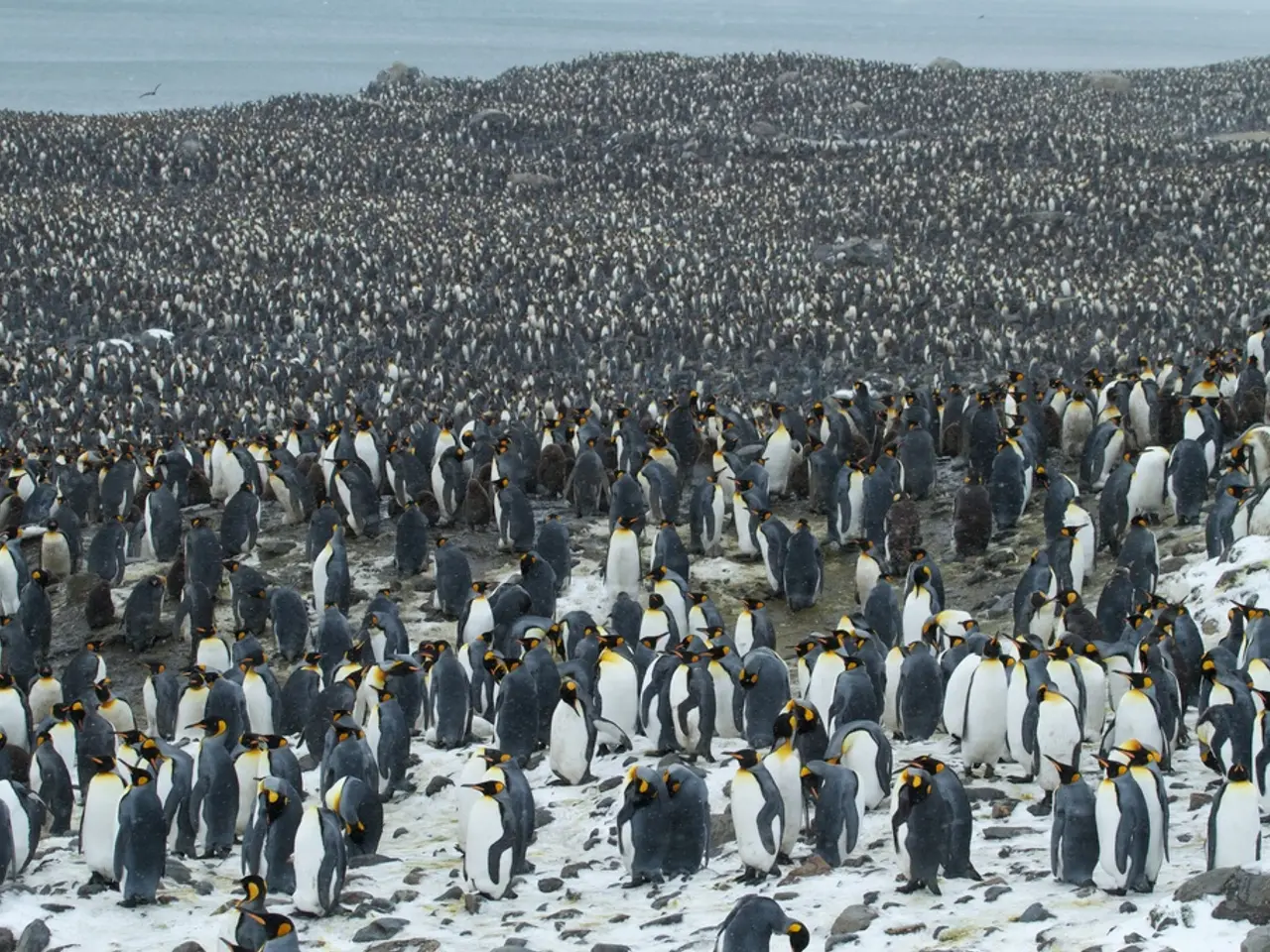Climate Change Alarm in Antarctica: Experts Warn of Quickening Pace of Adverse Effects
The Antarctic region, known for its vast ice sheets and unique ecosystems, is showing signs of rapid and alarming changes, according to a new study published in the prestigious journal Nature. Led by Nerilie Abram, a researcher at the Australian National University, the study highlights these "abrupt changes" that could have catastrophic consequences for the world.
The study reveals that emperor penguin colonies are declining faster than expected due to the retreat of sea ice. This retreat, in turn, is linked to a series of interconnected changes in Antarctica. The potential consequences include a rapid decline in sea ice coverage, destabilization and possible collapse of ice sheets and ice shelves, and severe impacts on marine and terrestrial ecosystems, leading to population declines due to habitat loss.
One of the key consequences of these changes is the potential rise in global sea levels. The collapse of the West Antarctic Ice Sheet alone could raise global sea levels by more than three meters, threatening coastal cities and communities worldwide. In fact, enough frozen water in West Antarctica could raise global sea levels by about six meters.
Another consequence is the acceleration of global warming. Retreating sea ice reduces the Earth's albedo (reflectivity), replacing bright ice with dark ocean water that absorbs more sunlight, which further warms the region and the planet. This vicious cycle is further reinforced by the slowing of the Antarctic ocean current and the melting of ice sheets.
The changes in Antarctica are not just localised issues. They can exacerbate climate change on a global scale. For instance, vital regional ocean currents are showing signs of slowing down, which can affect global climate systems and marine ecosystems.
Both marine and terrestrial species are experiencing population declines due to loss of habitat linked to these abrupt environmental changes. The study warns that without urgently limiting global greenhouse emissions to keep warming under about 1.5°C, these changes will intensify and cause catastrophic consequences lasting for generations.
Abram, the lead author of the study, summarizes the situation, stating that the Antarctic shows worrying signs from the perspective of ice, ocean, and ecosystems. She also notes that some of the abrupt changes in Antarctica will be difficult to stop and will have effects for future generations.
The study does not mention any legal responsibility for climate change. However, the authors suggest that rapid and deep cuts in CO2 emissions this decade are necessary to reduce the risk of abrupt changes in the Antarctic environment.
In conclusion, the study serves as a stark reminder of the urgent need to address climate change. The changes in Antarctica are interconnected and can exacerbate climate change, posing global threats that demand immediate action.







